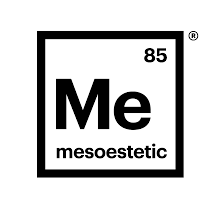Botox, made from Botulinum Toxin, is a protein generated by a bacterium. When administered in minute doses, it paralyzes muscles by blocking messages sent from the brain to the muscles. Traditional medicine uses it to treat uncontrollable muscle spasms and cosmetic medicine uses it as a beauty treatment. As a beauty aid, it smoothens out wrinkles from 3 to 6 months, and it only takes a half-hour to complete.
Unfortunately, due to its efficacy in facial rejuvenation and its profitability, the Independent Healthcare Advisory Service (IHAS) has cautioned that numerous medical firms are allowing employees to inject Botox into the faces of patients after only some rudimentary training, consisting of injecting oranges. In fact, staff members like administrators, are injecting patients after only a few hours of training. Moreover, many of the trainers have no medical background or qualifications.
The IHAS warns that this lack of proper regulation is putting patients at risk. Botox injections are even being given by hairdressers and beauty therapists, who are storing the Botulinum at the wrong temperature. These unhygienic conditions are causing medical complications. In Britain, one million people get Botox or facial filler injections, and 1 out of every 20 clients suffers complications, with those injected with Botox suffering droopy eyelids and those injected with facial fillers developing lumps under the skin.
A famous example about complications arising from improper treatment is the story of actress Leslie Ash. After a liquid silicone lip injection by a plastic surgeon at the house of a friend, the silicone set around the muscles creating a disfiguring “trout prout,” which surgeons have not been able to remove.
In an attempt to sort out the mess, the IHAS has launched a website called treatmentyoucantrust.co.uk that exclusively lists those who are medically qualified practitioners trained to provide injections. This industry-regulated website is also backed by the Government.
Dr Andrew Vallance-Owen, a surgeon and the Chairman of the IHAS Working Group, which is responsible for the website said, “We are appalled by the sheer volume of bad practice within the industry but there is also a lot of good clinical practice and we are convinced that the great majority of providers are 100 per cent behind improving patient safety.”
However, the website is regarded with skepticism by Niger Mercer, a consultant plastic surgeon and President of The British Association of Aesthetic Plastic Surgeons, who said, “It is evident from the information circulated by the IHAS to the profession that the scheme is being used as a marketing tool, its regulation appears rudimentary and their ‘Quality Mark’ is not recognised by the British Standards Institute or any other regulatory body. “










